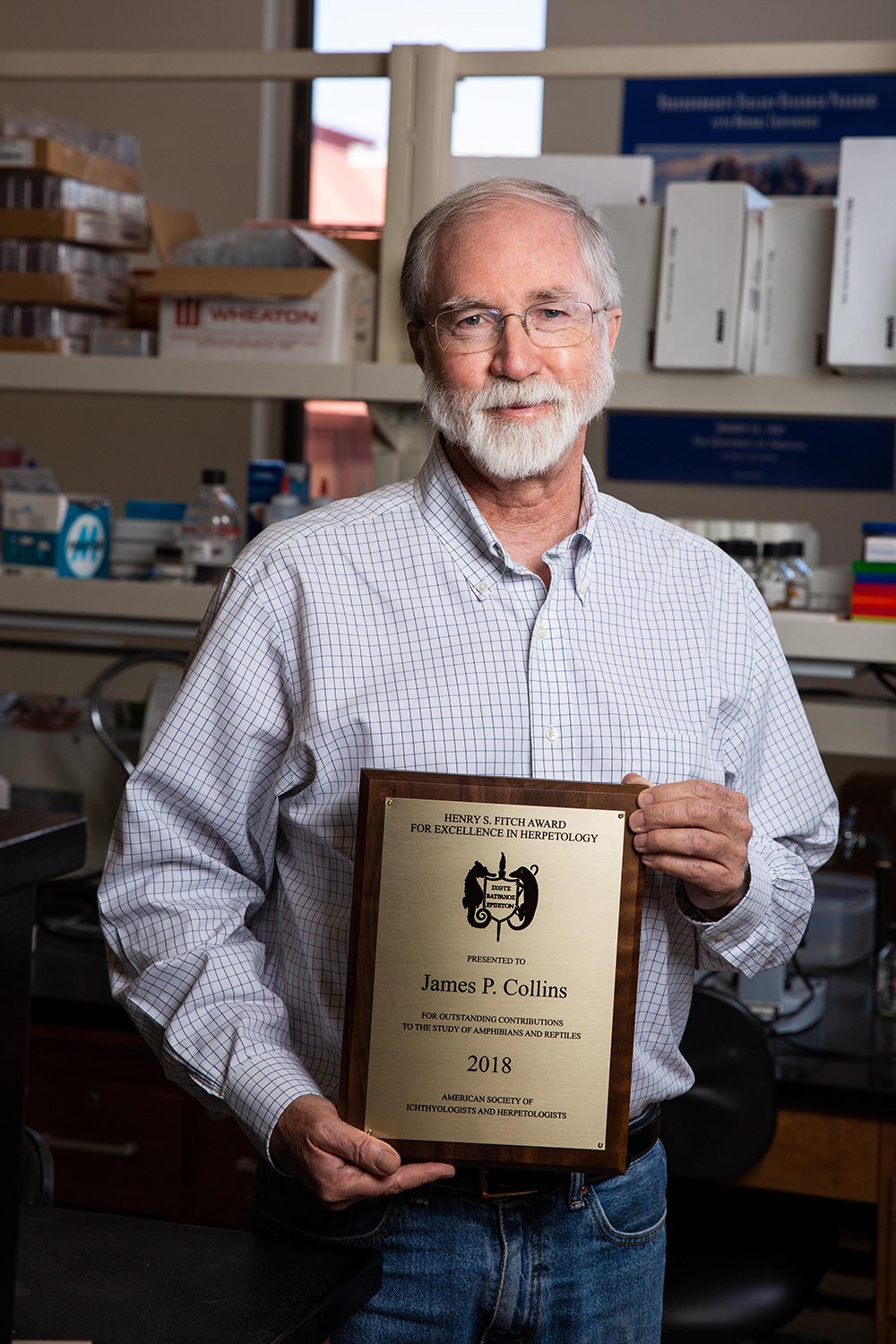ASU professor earns lifetime achievement award for excellence in herpetology

School of Life Sciences professor James P. Collins is an evolutionary ecologist who studies amphibians, along with viral and fungal pathogens, as models for studying factors that control populations dynamics. Photo by Deanna Dent/ASUNow
James P. Collins, professor with Arizona State University’s School of Life Sciences, was recently awarded the Henry S. Fitch Award for Excellence in Herpetology from the American Society of Ichthyologists and Herpetologists.
This award is given annually to recognize an individual for long-term excellence in the study of amphibian and/or reptile biology, based principally on the quality of the awardee’s research; consideration is also given to educational and service impacts of the individual’s career.
Collins has dedicated his career to studying amphibians, first understanding their metamorphosis and now trying to prevent their decline.
According to a statement released by the American Society of Ichthyologists and Herpetologists, his second peer-reviewed paper, which was published in “Science,” is “undeniably the most influential paper on the ecological tradeoffs associated with amphibian metamorphosis.”
Collins has published more than 140 edited volumes, book chapters and peer-reviewed articles, including a recent popular book, “Extinction in Our Times: Global Amphibian Decline.”
SOLS professor James Collins earned the Henry S. Fitch Award for his pioneering work studying amphibians. Photo by Deanna Dent/ASUNow
He has also mentored 23 master's degree students and 20 PhD students while also working for several organizations geared toward the advancement of science, such as the National Science Foundation; National Academies of Sciences, Engineering and Medicine; American Association for the Advancement of Science; and Association for Women in Science. Additionally, he served on the National Science and Technology Council under Presidents George W. Bush and Barack Obama.
The award is presented in honor of the long and productive career of Henry S. Fitch, which makes the distinction even more significant to Collins.
“I have been a member of the American Society of Ichthyologists and Herpetologists since I was a graduate student. The Fitch Award is arguably the highest recognition granted by the society,” Collins said.
“It is an honor to have my colleagues feel that the accomplishments during my career merit this recognition. It is especially humbling to glance through the list of prior Fitch Award recipients, researchers I have known and whose work I have admired. It is a real honor to have my work judged worthy to be included in this group of distinguished investigators.”
More Science and technology

Hack like you 'meme' it
What do pepperoni pizza, cat memes and an online dojo have in common?It turns out, these are all essential elements of a great…

ASU professor breeds new tomato variety, the 'Desert Dew'
In an era defined by climate volatility and resource scarcity, researchers are developing crops that can survive — and thrive —…

Science meets play: ASU researcher makes developmental science hands-on for families
On a Friday morning at the Edna Vihel Arts Center in Tempe, toddlers dip paint brushes into bright colors, decorating paper…


